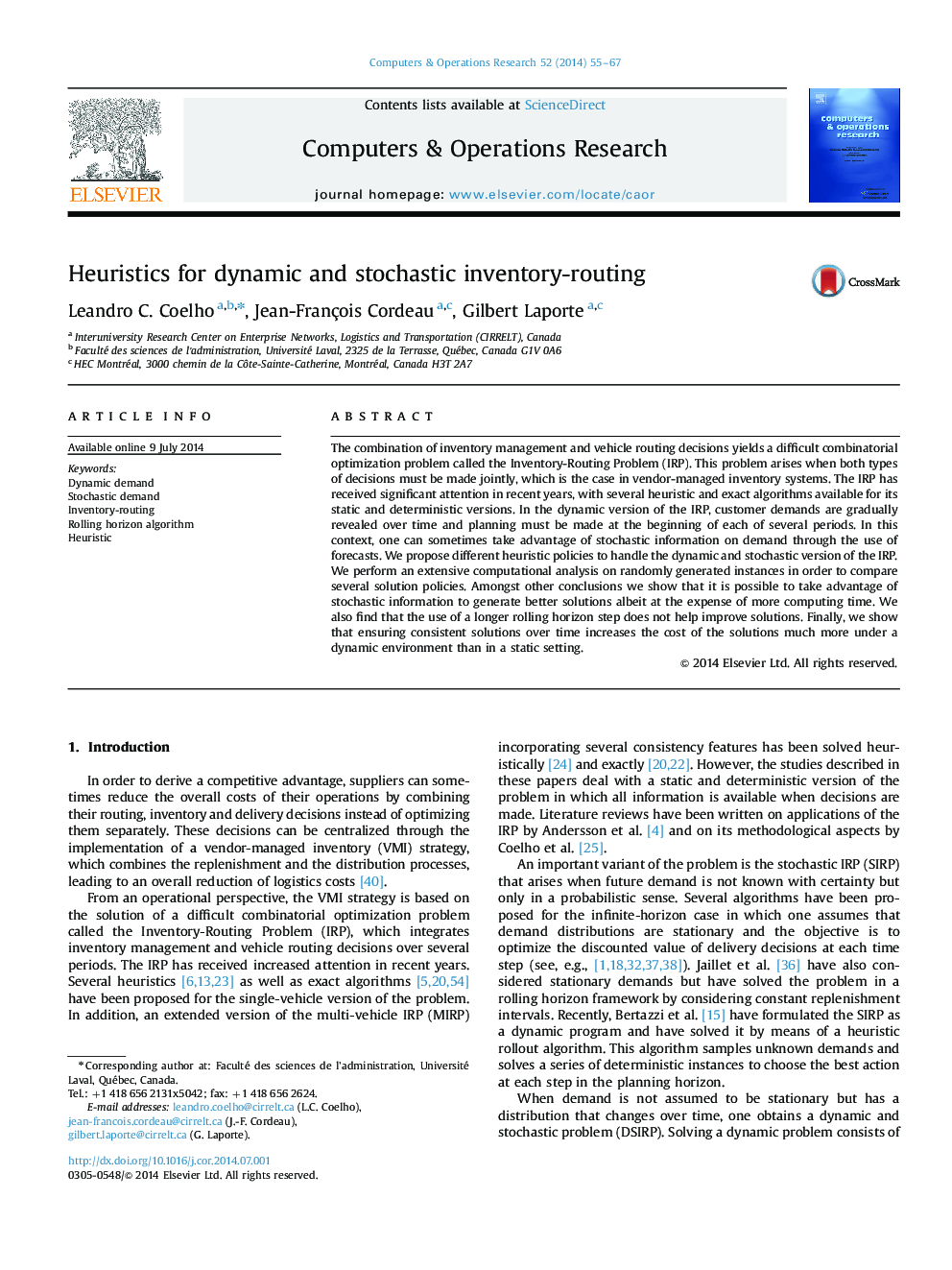| Article ID | Journal | Published Year | Pages | File Type |
|---|---|---|---|---|
| 474639 | Computers & Operations Research | 2014 | 13 Pages |
The combination of inventory management and vehicle routing decisions yields a difficult combinatorial optimization problem called the Inventory-Routing Problem (IRP). This problem arises when both types of decisions must be made jointly, which is the case in vendor-managed inventory systems. The IRP has received significant attention in recent years, with several heuristic and exact algorithms available for its static and deterministic versions. In the dynamic version of the IRP, customer demands are gradually revealed over time and planning must be made at the beginning of each of several periods. In this context, one can sometimes take advantage of stochastic information on demand through the use of forecasts. We propose different heuristic policies to handle the dynamic and stochastic version of the IRP. We perform an extensive computational analysis on randomly generated instances in order to compare several solution policies. Amongst other conclusions we show that it is possible to take advantage of stochastic information to generate better solutions albeit at the expense of more computing time. We also find that the use of a longer rolling horizon step does not help improve solutions. Finally, we show that ensuring consistent solutions over time increases the cost of the solutions much more under a dynamic environment than in a static setting.
